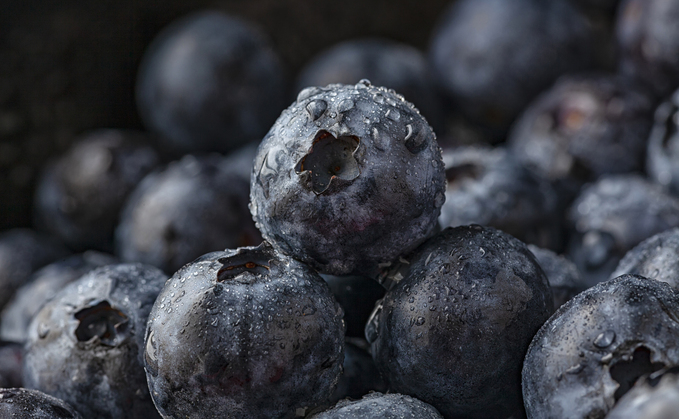
Pollinators have given a boost to this year's British blueberry crop, after the wettest July since 2009.
Blueberries are particularly sensitive to wet weather, but this year's crop has ‘stood up' to the unseasonable weather.
The industry said this was in large part down to bumblebees.
Blueberry flowers prefer a special pollination mechanism known as ‘buzz pollination' and bumblebees are particularly skilled at this technique, which involves the bee vibrating the flower to dislodge the pollen.
Bumblebees
This method ensures efficient pollen transfer and fertilisation of the flower, resulting in higher fruit set and better fruit quality.
Bumblebee-pollinated blueberry plants also result in more tiny seeds inside the berry. This tends to produce a bigger, firmer fruit - which can be an indicator of higher fruit quality and greater weather resilience.
Growers have employed bumblebee pollination schemes with one major grower bringing in over 3,000 bumblebee hives. This has resulted in a crop which is better able to stand up to the unseasonal summer weather.
Growers also collaborate with local beekeepers to bring honeybee hives onto their farms to boost pollination.
Many growers are also enhancing the number of other pollinators on their farms, such as planting wildflowers adjacent to crops.
Agronomists were reporting sweeter and larger blueberries with the cooler summer weather allowing the fruit to ripen more slowly.
British blueberries
Nick Marston, chairman of British Berry Growers, said: "British berry growers have demonstrated remarkable innovation in using pollination plans to create a robust blueberry crop this season that has withstood the unseasonable July weather.
"They have managed to grow a good and sweet tasting crop. The contribution of bumblebees to our farms has not only strengthened this year's harvest but also highlighted the connection between bountiful crops and a thriving ecosystem," he said.
He highlighted the success story of the industry.
"Only a few decades ago, at this time of year most blueberries on supermarket shelves were imported, that is no longer the case. This underscores the need to support British growers for the work they do to boost the British economy and the nation's health."






















